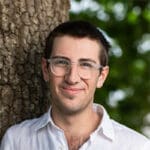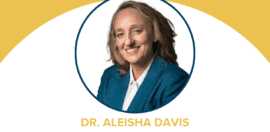Supporting rural youths in Cambodia to become role models for the next generation

27 December 2024 at 9:00 am
Aviv Palti is the founder of the Cambodia Rural Students Trust (CRST) is a unique non-government organisation entirely led and managed by its students. Through formal education, extensive mentoring and the opportunities to gain hands-on practical life skills, the students of CRST support and inspire over 20,000 rural students in Cambodia every year, becoming role models for the next generation!
Describe your career trajectory and how you got to your current position?
I co-founded our family business when I was 19-years-old, so pretty much started on the ground floor with big ideas, little money, a blank canvas and a lot of drive… I was our company’s first sales person and clearly understood the relationship between what customers were seeking, the products we needed to develop and the ability to meet and exceed our customers’ needs in a competitive market.
Our homewares products are developed inhouse and manufactured in Asia, so my role has always included product design, sourcing, sales and marketing – pretty much everything that’s ‘front-of-house’. As our company expanded, we added more team members and I transitioned from the ‘doing’ to leading and managing. Having an in-depth understanding of each role has enabled me to share our vision while enabling our team members contribute based on their knowledge, talent and experience.
Take us through a typical day of work for you.
My day starts with an hour’s walk around the park; having a dog who ‘can’t be let down’ means I rarely get out of this routine, which is of course great for both my physical and mental health.
I’m not a breakfast eater and will have my almond cappuccino mid-morning as I’m working on emails, projects or joining team meetings. Our meetings are usually on Zoom or the phone as our team members and I come to the office as needed and I’m only in the office once every couple of weeks. Of course technology means we are always connected and it’s fair to say that we are a lot more accessible as well.
I travel overseas for work every 1-2 months and I spend time with the NGO our family founded in Cambodia; the Cambodia Rural Students Trust (CRST) is a student-led NGO based in Siem Reap and our mission is to ‘Break the poverty cycle through education by educating future leaders’. I’m also the Immediate Past President of the Rotary Passport Club of Melbourne and we lead projects in PNG, Timor Leste, as well as Cambodia.
My day ends anywhere from 6pm to 10pm, depending on what Zoom meetings I join in the different time zones which my activities take me to.
What is the biggest challenge you’ve encountered in your career, and how did you overcome it?
The biggest challenge I’ve always faced is people believing that their way is the right way and the only way. Whether it’s ‘not knowing what you don’t know’, a desire to control or a fear of not ‘succeeding’, over the past 40 years I’ve found that many people don’t communicate effectively or collaborate wholeheartedly.
The keys to overcoming this challenge are some of my core values –
- Respect and dignity are not negotiable
- Effective communication is a life skill to be practise all day every day (face-to-face, phone, email, social media)
- Judge less, accept challenges
- Invest my energy with like-minded people, while always leaving the door open for others
If you could go back in time, what piece of advice would you give yourself as you first embarked on your career?
That’s an easy one – don’t buy into things with your emotions.
All too often emotion kicks-in before logic and by using the balance of heart and head we can create better outcome for ourselves and for others. This applies to decision-making, personal interactions and general communications.
The best way to achieve this is by creating a time-divide between the ‘event’ and the response we have to deliver. Building-in a ‘spacer’ means we have time to evaluate, seek more perspective and formulate the best outcome for all. We before me.
How do you unwind after work?
I don’t drink and I don’t smoke – and I don’t spend time with people I don’t like; so, my time after work is spent with the people I enjoy spending time with, reading and writing.
I often have late meetings with our CRST and Rotary team members, and these are definitely part of my unwinding. I’m also a regular guest speaker at numerous Rotary clubs, both in-person and on Zoom.
Earlier this year I finished writing my book Empowered, a new generation of leaders, which is the inspirational true story of rural youths in Cambodia who empower themselves and their families from poverty to middle class in a few years. Much of the book was written in my ‘unwind hours’ of 10pm to 3am.







